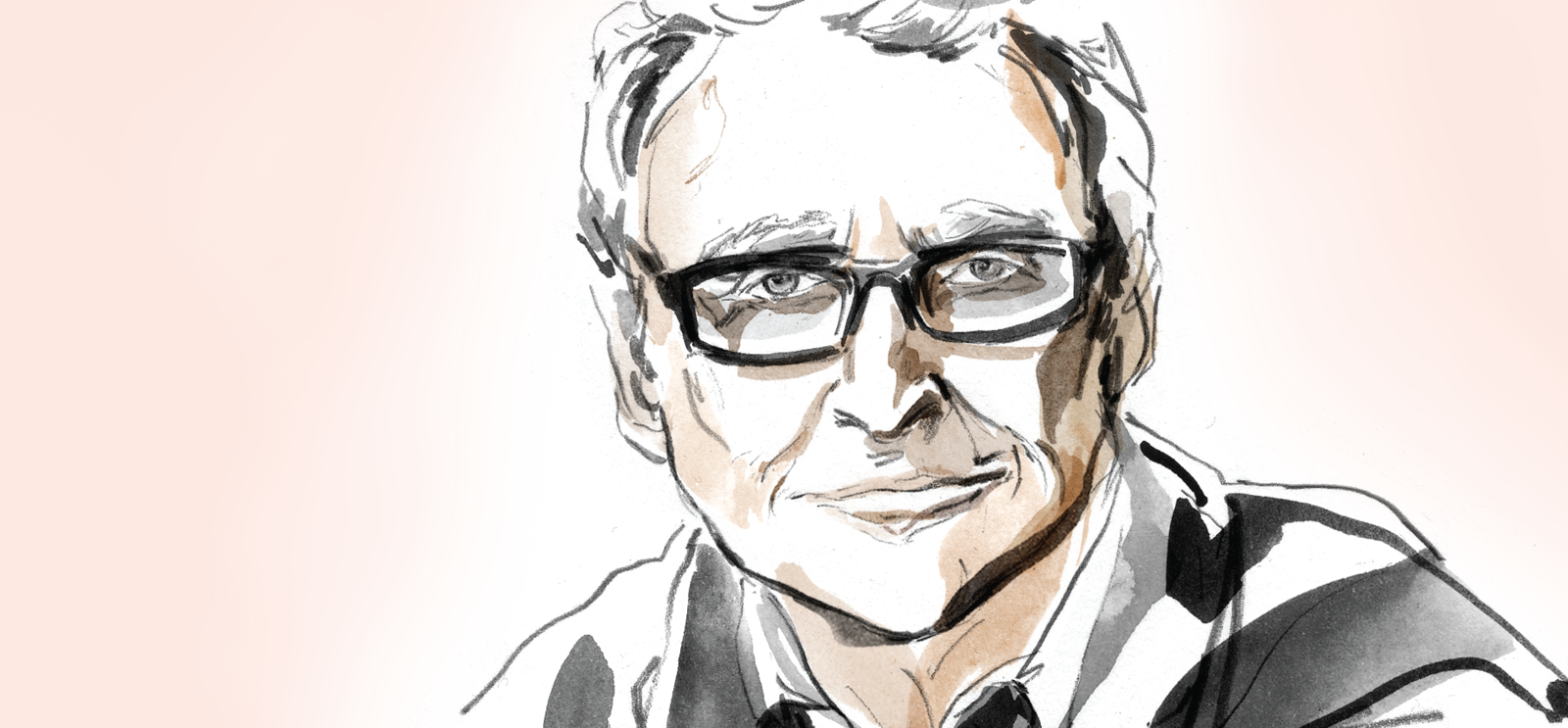
(Illustration by Heather Gatley)
Herbert J. Gans, PhB’47, AM’50, professor emeritus of sociology at Columbia University, reminds us that Chicago is also where Nichols left his mark on classical music radio.
Of the abundance of obituaries written about acclaimed director and comedian Mike Nichols, EX’53, since his death on November 19, few failed to mention Chicago. It was where he directed his first play (with University Theater), where he met Elaine May, and where he helped to shape the city’s burgeoning improv comedy scene.—Ed.
Mike Nichols, who died last November, will be remembered for a very long time for his pioneering contributions to improvisation, comedy, theater, and films. However, I remember an earlier Mike, who was a pioneer in classical music radio.
I do not remember anymore when I first met Mike, but in 1952, he was hosting a Saturday night radio program of chamber music while he was still a student at the University of Chicago.
The radio station for which Mike worked was also a pioneer, broadcasting in a new way called FM. The station was WFMT, now a giant in FM radio, but in the early 1950s, it was a mom-and-pop affair run by a young couple named Rita and Bernie Jacobs.
Its studio, which may have been a storefront, was located in far west Chicago, perhaps even in Cicero, then known mainly as a headquarters of sorts for the mafia.
I know all this because on many Saturday nights, a bunch of us drove out to WFMT to keep Mike company while he was spinning records. He may have done all the work himself, including the technical tasks, but there was also time to listen and to talk.
Incidentally, chamber music was itself a kind of novelty then, especially in Chicago, and the University participated in promoting it. Many of us first learned to listen to chamber music while U of C students, and I will never forget the Budapest String Quartet’s regular visits to the University. There weren’t many string quartets in America in those days, and the Budapest String Quartet was the best known in the United States and perhaps in the whole world.
According to Wikipedia, in 1953 Mike also initiated a folk music program for WFMT, but by then I was working in Washington. In fall of that year I moved to Philadelphia to study for my PhD at the University of Pennsylvania. One day, probably sometime in 1954, I tuned in to Philadelphia’s classical music station and I thought I heard a familiar voice. I called the station, and yes, it was Mike, once more hosting programs of chamber music and other classical music.
We renewed our old acquaintance, and Mike came over for dinner a few times, until one day he announced that he was going back to Chicago. He did not say why, but the rest is history.
